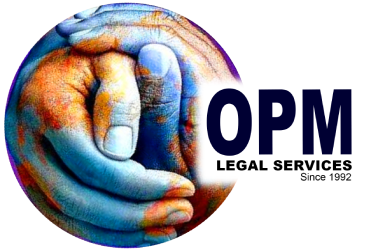
What is the Certificate of Tax Residence in Panama and around the world?
09/03/2024
Personal VPN with your home or office IP address
11/03/2024If you are wondering how to disinherit my children, it means that you have glimpsed legal limitations in your country
The question of disinheriting one’s own children touches the heartstrings of the legal system and family structure, and how to disinherit my children may seem like an impossible mission. But it is not! And I will explain how.
The question of how to disinherit my children enters into a context of inalienable rights and fundamental principles governing successions. The institution of testamentary succession moves within a balance between the personal autonomy of the testator and the guardianship of the next of kin, with special attention to the position of the children as legitimate heirs.
At the international level, there are laws that enshrine the principle of testamentary autonomy, according to which each individual has the right to dispose of his assets for the period after his death through the drafting of a will. However, this freedom is circumscribed by rules that safeguard the rights of the legitimate heirs, which include the children of the de cujus.
The legitimate heirs are entitled to a share of the inheritance defined as the “legitimate share”, which the testator cannot circumvent or reduce by testamentary dispositions. This implies that, regardless of the wills expressed in the testament, the children are entitled to a portion of the inheritance that the same law protects as intangible.
The legal conditions of disinheritance: the unworthiness to succeed Despite all that I have illustrated there is a legal system that could solve the question of how to disinherit my children. In most countries there are specific conditions under which an heir can be considered unworthy and therefore excluded from succession. These conditions include:
– Having committed crimes of particular gravity against the person of the testator, his or her ascendants, descendants or spouse;
– Having induced the testator, by violence or malice, to draw up, modify or revoke a will;
– Having engaged in conduct that has led to the loss of parental responsibility.
It should be emphasized that unworthiness to succeed is not a condition that the testator can arbitrarily attribute to an heir in the will, but must be declared by a judge through a judicial process, based on concrete acts and evidence. Therefore, as you can well understand, it is a long and tortuous path and even if you obtain a favorable sentence, it can be challenged.
When a will injures the legitimate share of the legitimate heirs, the latter have legal instruments at their disposal to protect their rights. In particular, they can avail themselves of the action of reduction, which makes it possible to annul the harmful testamentary dispositions and to reestablish the distribution of the inheritance in respect of the legitimate quotas established by law.
The disinheritance of children by means of a judgment is, therefore, an option legally limited to extremely serious cases and must be pronounced by a judicial authority.
Current regulations reflect the attempt to balance the importance of individual autonomy in the disposition of one’s property with the need to protect family ties and ensure fair treatment of legitimate heirs.
The Solution: How to Disinherit My Children
If you are wondering how to disinherit my children or how to leave them your assets without them having to pay inheritance taxes, the means is a Panama Foundation. Therefore, disinheriting your children, a relative or spouse or protecting your inheritance, even from taxes, is much simpler than you may think.
A Panama private interest foundation set up by the law firm Caporaso & Partners of Panama, allows, in addition to the protection of the estate, to set up an inheritance structure in derogation of probate laws and inheritance taxes. Panama’s private interest foundations offer several advantages that make them attractive tools for estate planning and asset protection at the international level.
These legal entities were introduced into Panamanian law in 1995, inspired by the Liechtenstein family foundations. These legal entities combine asset protection with operational flexibility, ensuring that the estate is safeguarded from potential third party claims or legal actions (including potential heirs), while at the same time allowing for a smooth distribution of assets to the designated beneficiaries, bypassing traditional succession processes.
This means that through a Panama Foundation you will obtain both the advantages of a solid patrimonial protection, as well as a tailor-made succession structure that no one will be able to dispute. Moreover, anonymity is another fundamental aspect offered by Panamanian foundations. Panama foundations also benefit from a particularly advantageous tax context for the management of your assets with tax exemption on foreign income. Finally, the unlimited duration of these entities allows you to look to the future with serenity, offering a long-term solution for the tax-free preservation and growth of family wealth across generations. Want to know more about how to disinherit my children? Read frequently asked questions about Panama Foundations, analyze the service or request a consultation.





